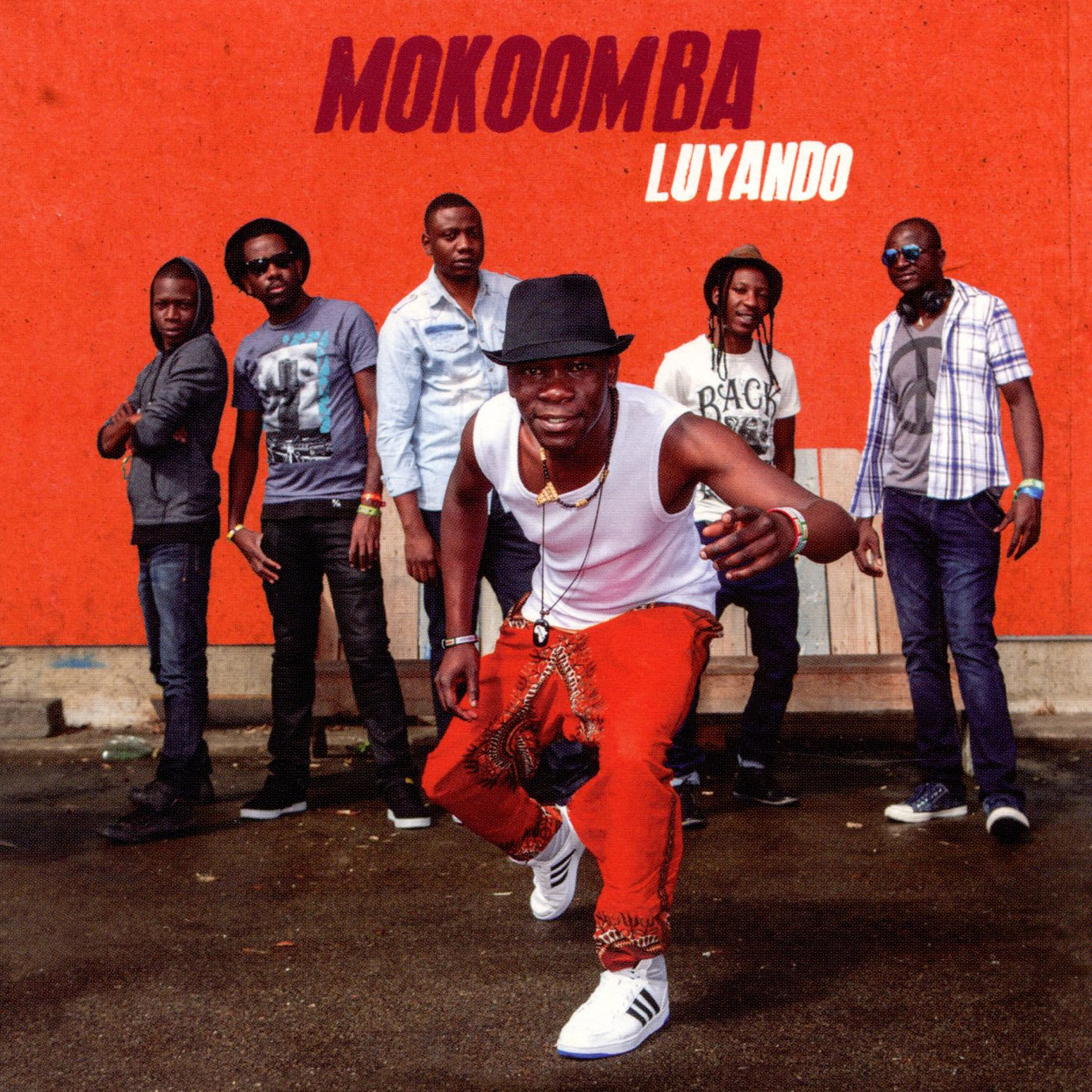Reviews March 10, 2017
Luyando
I’ve written before that Mokoomba is probably the most impressive new African band I’ve heard in recent years. And this, their second album, does nothing to dissuade me from that view. The band comes from the Zambezi Valley in northern Zimbabwe, near Victoria Falls. These six, super-talented guys grew up together in Chinotimba township. Most of them are Tonga, the original inhabitants of the valley, although displaced and marginalized ever since the construction of the the Kariba Dam and resulting Lake Kariba in 1955. But you sure wouldn’t guess at that tragic history hearing these 10 vivacious songs. The band’s 2012 debut Rising Tide was full-on Zimrock, pulling in influences from South Africa, Congo, Mali and Jamaican dancehall in a driving, soaring set of electric band numbers.
With Luyando, Mokoomba makes the rather bold move of going acoustic, and digging deeper into their Tonga roots. Guitarist Trustworth Samende sets aside his electric guitar to riff and vamp only on nylon strings, which he fingerpicks deftly, often muting the strings as a Zimbabwean mbira guitarist might. But this music has no connection to mbira, nor to most other familiar Zimbabwean music, with a few exceptions, such as the minor key guitar vamp on “Kumukanda,” which may recall some of the deeper, darker early Thomas Mapfumo classics. Abundance Mutori provides muscular bass lines throughout. Meanwhile, the rest of the rhythm section can be as light as the clicking together of wooden sticks (“Vimbe”), and even at its most dense, rhythmic backing done mostly with traditional drums, shakers and wood blocks, rarely traps. Just the same, these grooves utterly crank. They are as pumping and danceable as anything out there despite the non-electric instrumentation.
That said, the real story here is the vocals. Lead singer Mathias Muzaza has a rare gift. He can coo and croon, growl like a dancehall braggadocio, toss in a little falsetto and vibrato (“Muzwile”), or soar into his full-throated, leathery smooth tenor, reminiscent of Salif Keita in a griot’s wail. Keita is an acknowledged influence for Muzaza and, as if to underline that fact, the song “Mabemba,” the closest thing to a ballad here, works in some distinctly Malian guitar licks. While Muzaza’s highly original vocals are deeply impressive for their rich palette of colors and unfailing power, they also deliver unfailing emotional effect. There is a profound sense of conviction in every performance, and his voice is hugely amplified by the band’s equally stellar vocal support work. Everyone here sings beautifully, and when their voices blend in call and response as on the polyrhythmic “Njawane” or heavenly choral luster as on the title track, you can just tell that these guys have been singing together most of their lives. It’s almost overwhelming. And when they finish out the album with a typical southern African choral piece—a playful courtship number called “Nyaradzo”—well, Ladysmith Black Mambazo could hardly do better.
Luyando means “mother’s love” in Tonga. The band also sings in Luvale, another northern tongue, as well as Shona and Ndebele. But these songs delve deeply into long-neglected Tonga culture. Some, like “Vimbe” and “Kumukanda,” actually come from Tonga initiation ceremonies that these musicians experienced as boys. “Kambowa,” performed with just drums, raucous voices and what sounds like a panpipe, really feels like a village ceremony, and at the height of the action. “Mabemba,” for all its Malian overtones, is a meditation on Tonga values. All this is good to know, but the performances themselves easily convey a sense of joyous gravitas found only in the greatest and most enduring African music.
For all its shortcomings, 2017 is shaping up as a good year for African pop, and this is an absolutely indispensable example. Mokoomba will tour later this year. (Visas were recently approved!) Watch this space for details, and don’t miss them. As fine as they are on record, they are even better live.









